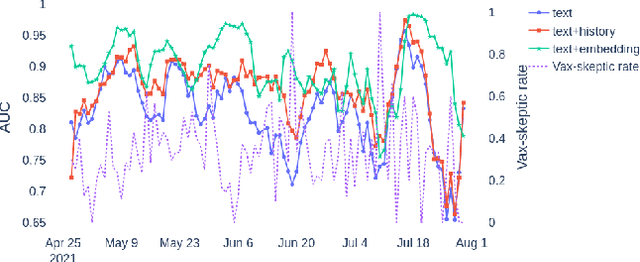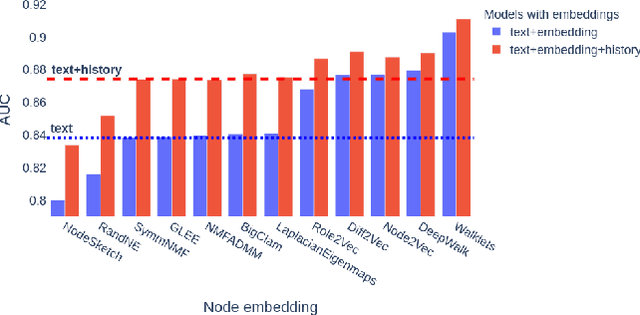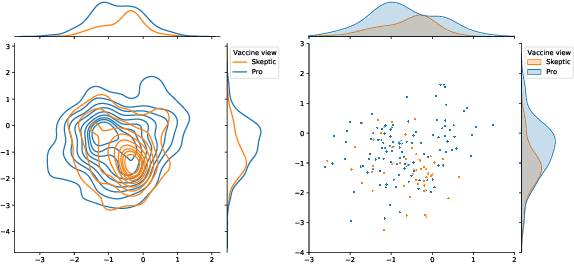Ferenc Béres
Vaccine skepticism detection by network embedding
Oct 20, 2021



Abstract:We demonstrate the applicability of network embedding to vaccine skepticism, a controversial topic of long-past history. With the Covid-19 pandemic outbreak at the end of 2019, the topic is more important than ever. Only a year after the first international cases were registered, multiple vaccines were developed and passed clinical testing. Besides the challenges of development, testing, and logistics, another factor that might play a significant role in the fight against the pandemic are people who are hesitant to get vaccinated, or even state that they will refuse any vaccine offered to them. Two groups of people commonly referred to as a) pro-vaxxer, those who support vaccinating people b) vax-skeptic, those who question vaccine efficacy or the need for general vaccination against Covid-19. It is very difficult to tell exactly how many people share each of these views. It is even more difficult to understand all the reasoning why vax-skeptic opinions are getting more popular. In this work, our intention was to develop techniques that are able to efficiently differentiate between pro-vaxxer and vax-skeptic content. After multiple data preprocessing steps, we analyzed the tweet text as well as the structure of user interactions on Twitter. We deployed several node embedding and community detection models that scale well for graphs with millions of edges.
* The data and the source code are available on GitHub: https://github.com/ferencberes/covid-vaccine-network
 Add to Chrome
Add to Chrome Add to Firefox
Add to Firefox Add to Edge
Add to Edge